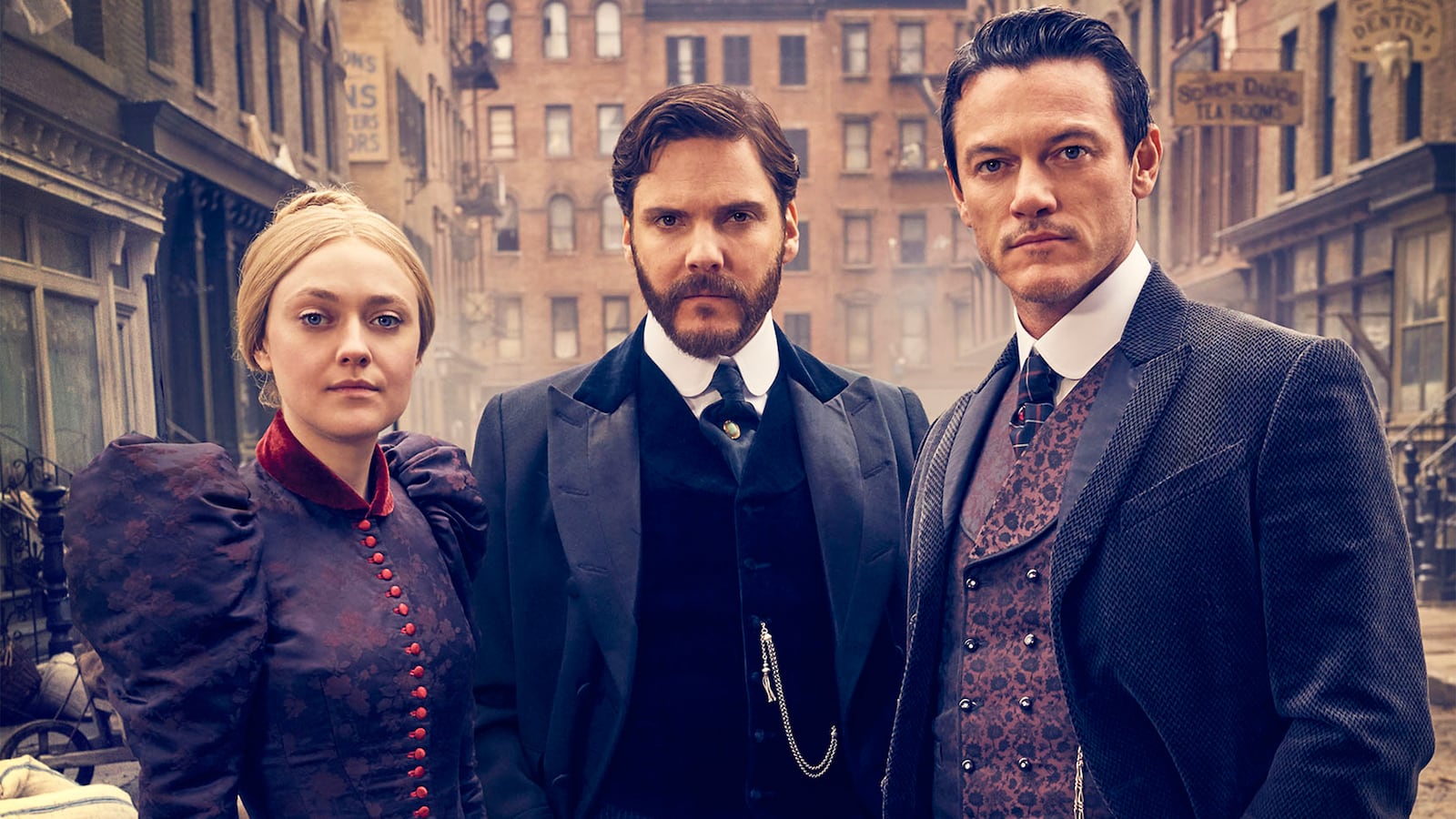The Alienist is not about aliens, go figure.
As it turns out, “alienist” is a term for psychiatrists in the early days of the profession who believed that the mentally ill were “alienated” from their minds. The outdated term received a resurgence when Caleb Carr’s 1994 novel The Alienist was released, which TNT’s new drama is adapted from. It’s a spooky, grisly period drama that while interesting, unfortunately feels extremely dated.
Take for instance the premise, where you have Daniel Brühl as Dr. Laszlo Kreizler, an alienist who hunts serial killers. In order to understand serial killers, he must understand their minds. It’s the advice that Hannibal Lecter gave Clarice Starling nearly 30 years ago. It’s the same method that Dr. Will Graham employed on NBC’s Hannibal only a few years ago. What The Alienist has going for it is that it’s set at the outset of the type of detective work Will would do on Hannibal, but we see it from the lens of 1896.
The series is gory without being too over-the-top, as it plunges into a plot about young male sex workers being murdered. The first such is a boy in women’s clothes, not only murdered but his eyes also removed from their sockets. The Alienist wishes to balance the quaintness of a period drama with the verve of modern procedurals like the aforementioned Hannibal and Criminal Minds, but it all comes across as too familiar to be entirely exciting. The Alienist isn’t particularly interested in the minutiae of technology like the superior The Knick was and, as a period piece, it doesn’t quite feel as sumptuously lived in as The Crown or other series of that ilk.
I have never read Carr’s novel; it’s quite possible fans were clamoring for this adaptation. But as it arrives now, it feels unnecessary in a television landscape where we’ve gone to this well multiple times. How many times must a brilliant man hunt down serial killers in the same fashion, without at least the visual and trippy panache of a Hannibal?
The addition of Luke Evans and Dakota Fanning breathes some life into the series. Evans’ portrayal of a newspaper illustrator with a penchant for brothels sleazes up the series in a necessary way. Fanning as police secretary to Theodore Roosevelt invites a meditation on women in the workplace and in the late 1800s that would be better served as the main crux of the series. Adapting The Alienist for the screen ought to have invited adapting it for our modern times. Placing it in Fanning’s POV might have made the series a far more urgent and vital piece of television than it is now.
Speaking to NPR, Fanning discussed the relevance of her character Sarah Howard, in today’s climate, “On one hand, you know, it’s great when the show that you’re making is relevant to the times that you’re living in. But some of the relevance is kind of unfortunate because there is a scene in the first episode with my character and another police officer, and you see sexual harassment and abuses of power in the workplace. And the stories do parallel stories that are being told right now, so I think it is important, especially for my generation, to see those similarities between now and so long ago.”
Which isn’t to say The Alienist is a complete wash. It’s a rather enjoyable diversion for those who are fans of procedural crime dramas and the fun of its 19th-century setting gives it an extra bit of genre flair that’s lacking from your typical CBS series. But what The Alienist is currently missing is vitality and a sense of “why now?” That is, other than simply, “TNT had the rights to the book.”
Maybe it should have been about aliens.






